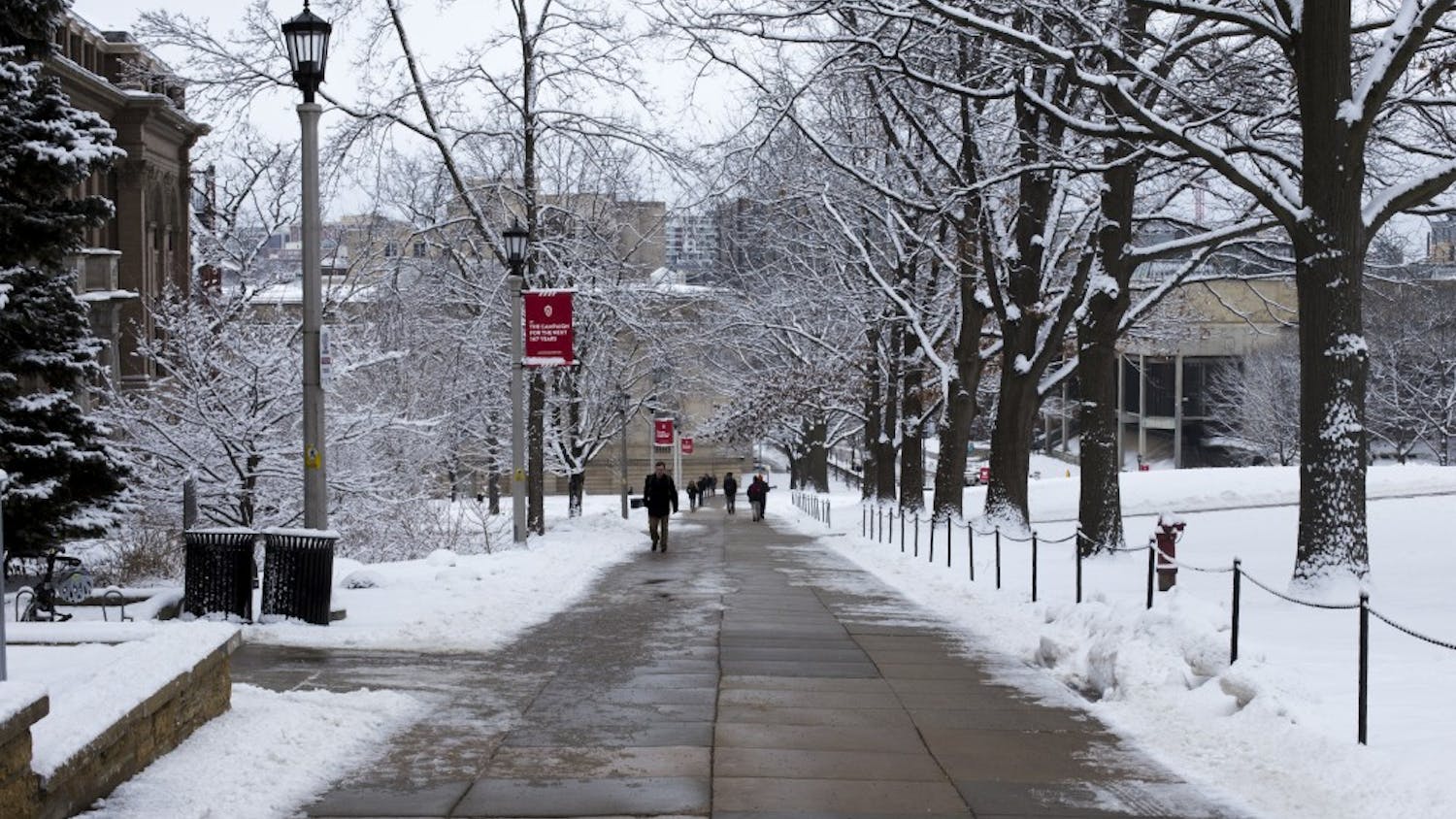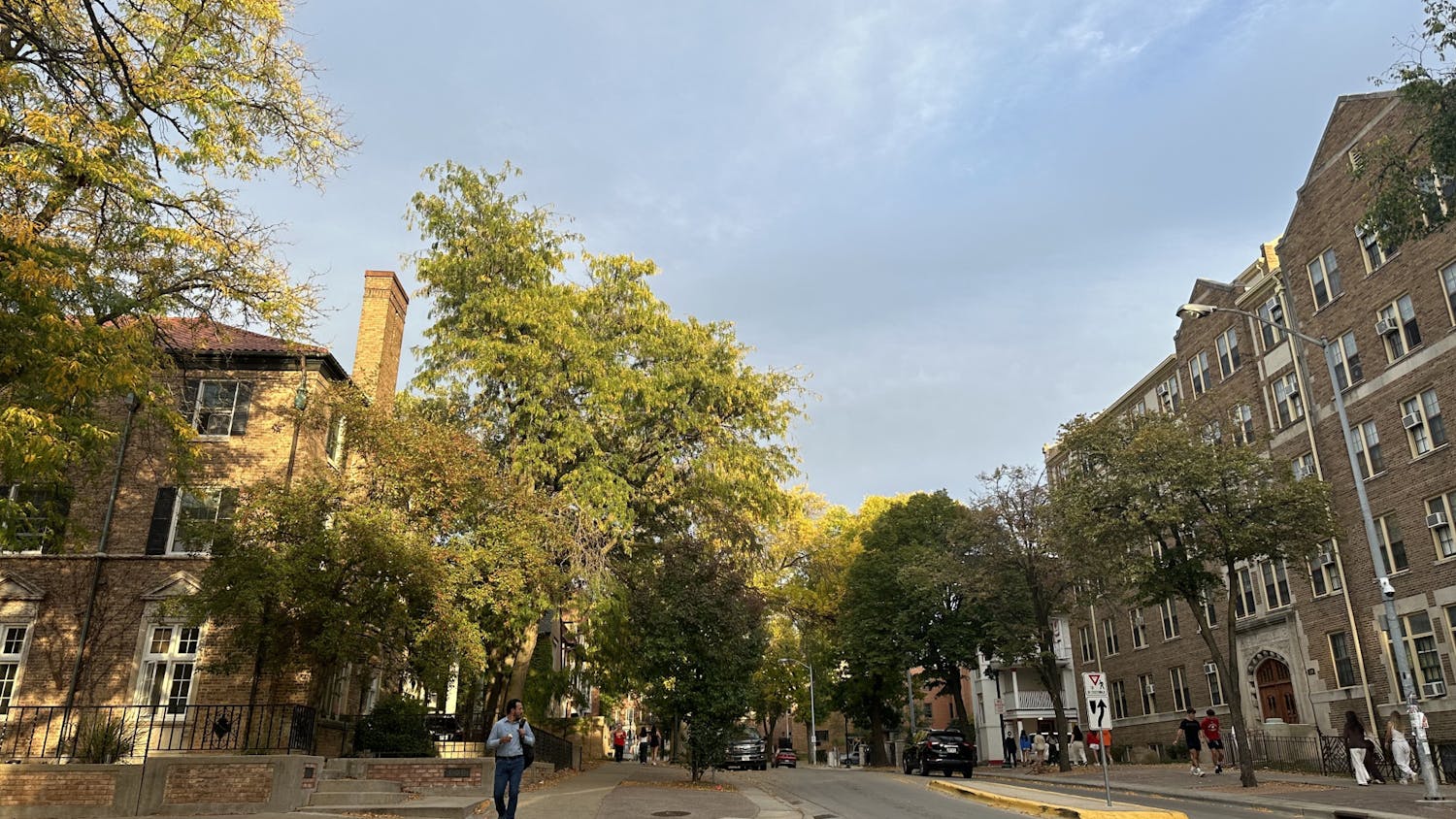Tucked between two lakes, UW-Madison has a lengthy and unique history of environmental activism and conservation.
Several notable figures — such as Aldo Leopold, Gaylord Nelson, John Muir and Charles Van Hise — have left their mark on this campus, both literally and spiritually. Leopold’s authorship on conservation and land ethics have shaped conversations surrounding the environment, and Nelson’s emphasis on conservation led to the founding of Earth Day in 1970, and helped spawn one of the first major American environmental movements.
The university’s drive to become a more sustainable institution culminated in the creation of the Office of Sustainability in 2012, following recommendations made by the 2010 Sustainability Task Force.
Since its inception, the Office of Sustainability has led the charge in reducing energy usage, improving waste streams and creating a composting system. It has also provided student organizations, offices throughout the university and events held across campus become green through its various intern programs.
Though UW-Madison has maintained a historical and current commitment to protecting the environment, The Daily Cardinal Editorial Board believes the university must go beyond the established status quo. By striving to address contemporary issues facing this campus, the university can reach new heights in sustainability.
Food waste, for one, has been a major focus of the university in recent years; the composting program and the creation of the “Ticket to Takeout,” a reusable to-go container program, at dining halls are emblematic of this. These efforts are certainly a step in the right direction, but there are still some glaring issues with waste created on campus.
While there are many drop off locations for composting, not every building has a food bin available, causing people to decide whether they should seek out a building that does have a composting bin or if they should throw their food scraps away.
“We would love to pursue a support of composting for students who use the library,” Carrie Kruse, director of College Library, said. “We already have a compost bucket in our staff lounge and can direct the relatively small amount of compost generated by library staff to the compost bins across the street by Science Hall. Doing something at scale for all the users of the library, however, is much more complicated.”
The logistics and education that would be required to put such a system in place make establishing additional composting options more difficult, but the university cannot let this complication from preventing food waste from being disposed of in a responsible manner.
“It's a hope of mine that we can pursue this, however, knowing how much food gets consumed in the library and the ensuing food waste that comes with that,” Kruse said.
A major part of the problem of food waste management also stems from how much food is produced on campus. Those who work at the dining halls or the unions know that after four hours, food is no longer eligible for sale and either needs to be donated or disposed of.
“There is a lot that goes to waste,” Angad Dhariwal, a UW-Madison junior and member of the Campus Food Recovery Initiative, said. “Dining halls just don’t have the infrastructure to donate it and can’t compost all of it, though they try to compost as much as they can.”
The solution to the massive amounts of food produced is to cut back on how much is made every day. Though this seems cut and dry, it isn’t as simple as just making less food, and is something far more systemic not only on campus but throughout the country’s culture.
“I think they have to make more than people are going to eat because it’s just so ingrained in how Americans buy food,” Dhariwal said. “What needs to happen is more of a social change for the dining halls to reduce how much they make, and in turn they can reduce how much they need to throw away.”
Waste management is also an ongoing component of sustainability that the university is seeking to improve. Many of the waste receptacles across campus are designated for trash and various recyclable materials, but there are significant problems with the adherence to these designations.
Recycled material can be ruined by one mis-recycled or thrown away item, and this is more frequent than is desired. Students who spend their days studying in College Library may be familiar with the sight of the waste receptacles filled past the brim with trash, something that at points has been commonplace.
In recognition of this issue, the “Recycle Right” campaign at the library has helped provide students with proper recycling habits by displaying table tents and signage depicting what types of waste belong in which bin.
“They [The Office of Sustainability] not only help us know what is recyclable or not, but also why, and we can include that in our social media and other communications,” Kruse said.
The Office of Sustainability has helped College Library conduct trash audits before the campaign initiated, and are currently in the midst of assessing the difference the campaign has made on waste management habits.
“We look forward to learning about the potential direct impact on our waste stream as part of our assessment,” Kruse said.
There is still more that needs to be done to deal with waste more broadly, however — and to reduce it before it even reaches this stage
The “Skip the Straw” campaign at the unions aims at reducing waste in this manner. Straws are notoriously impossible to recycle due to their size and it is a relatively easy swap for most people to make, which is why it was implemented last fall.
Some have called the policy a “low-impact, high visibility,” however, meaning it doesn’t provide the more comprehensive and larger-impact changes the university should be pursuing.
Others, however, view these campaigns as important for changing people’s mindsets when thinking about green living, which can then lead to more systemic changes.
“Initiatives like removing straws from the waste stream can seem ‘low-impact,’” Alex Frank, the sustainability analyst at the Office of Sustainability, said. “Yet I do believe that small actions like these can get people to think about how their choices impact the world around them and hopefully apply that same sort of thinking to other decisions they make in their lives.”
Katie Piel, the chair of ASM’s Sustainability Committee, shares this mindset.
“This campaign provide multiple touch-points to educate consumers that they can still drink and eat without being unnecessarily wasteful and how to be more mindful about sustainability in their everyday life,” Piel added.
Environmental and sustainability education are especially crucial if the university is going to strive to become a greener place, but it is something that UW-Madison is currently lacking in.
There are great disparities in who receives such education when they first arrive on campus. Freshman living in Leopold, especially those in the Greenhouse Learning Community, are familiar with recycling practices and what can be composted, but freshman in other dorms aren’t always provided that same information.
UW-Madison currently doesn’t mandate any such education of all of its incoming students or staff either, often leaving it up to students to take the initiative to learn more about how to live greener.
“We generally see people that are already interested in the environmental community,” Ally Burg, the student programs assistant at the Office of Sustainability, said. “There are times where people don’t understand or engage with the events as much.”
The Office of Sustainability has recognized this as an issue that is preventing everyone on campus from being on the same page for living more sustainably, and thus are seeking out opportunities to provide this type of education to all students, regardless of their baseline knowledge.
“If you can get students right when they come to campus and say, ‘Hey, Badgers live sustainably, this is what we do, this is how we act, and this is how our system works,’ then it’s that much easier to get everybody onboard,” Burg said. “I think that would make a difference once you get in four years of that programming in, and then all of the sudden everyone on campus is caught up to speed on what we do.”
Recently, the Office of Sustainability has applied to secure a table for SOAR for this summer’s session, which would enable them to interact face-to-face with incoming students.
“We could get students at orientation and put sustainability on the forefront,” Burg said. “It would allow us to be there every day and engage with this new wave of students.”
She also discussed the possibility of having an online module students could complete before they start their first year at UW-Madison as well. While it would not require an in-class experience, an online module similar to the ones already offered on alcohol and consent could be a fantastic opportunity to get students thinking about sustainability from the moment they step on campus.
Aside from mandatory education, the university should better utilize advertising opportunities and social media campaigns to broadcast the resources and programs currently available to students and staff.
“The university can improve their communication and popularize the resources they have more than they do now,” Dhariwal said.
By sharing recycling information and composting locations, it would make it easier for students to utilize such resources and services, and to make informed decisions when dealing with waste. Better promotion of green events and trainings occurring around campus would also have a greater chance of getting more students engaged with living more sustainably.
There is a lot of environmental and sustainable progress that the university can — and should — proudly point to, but these issues require additional attention and immediate action, and as such, all of these goals and proposals should be actively pursued.
If UW-Madison can be a national leader in research, various graduate programs and volunteering through the Peace Corps, then there is nothing holding it back from serving as a leader in sustainability.






